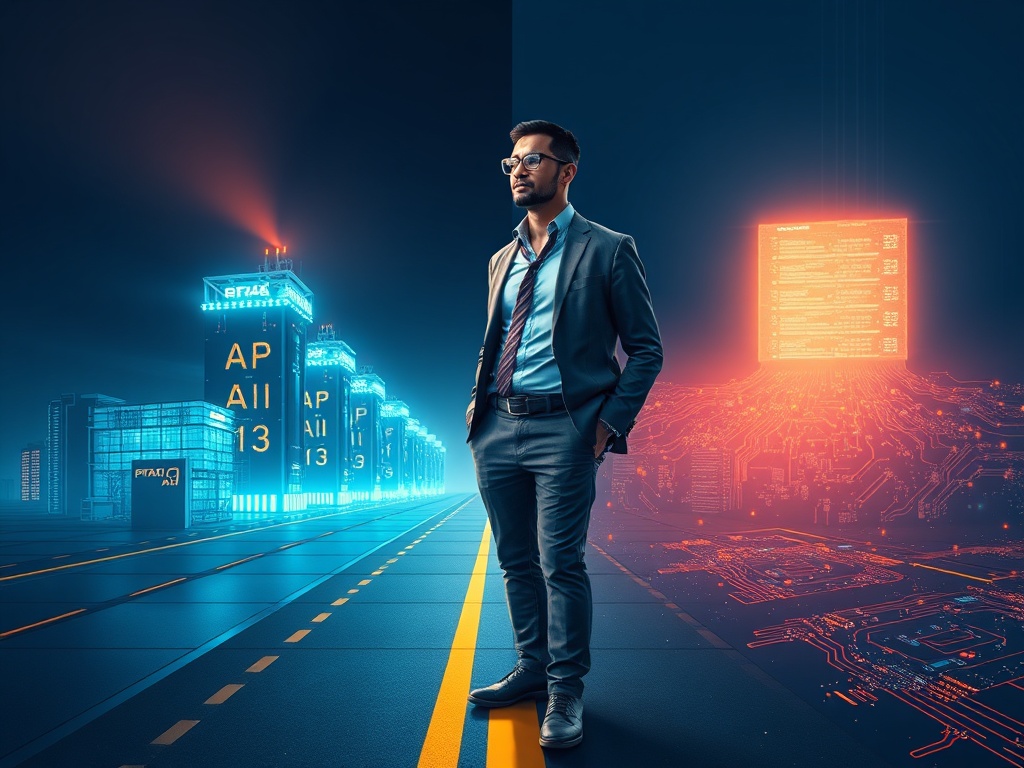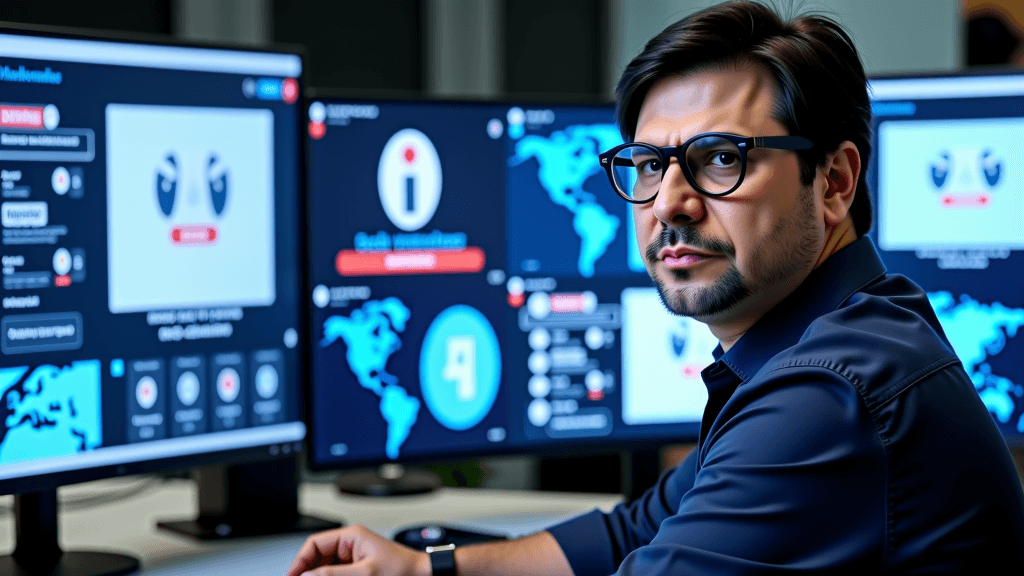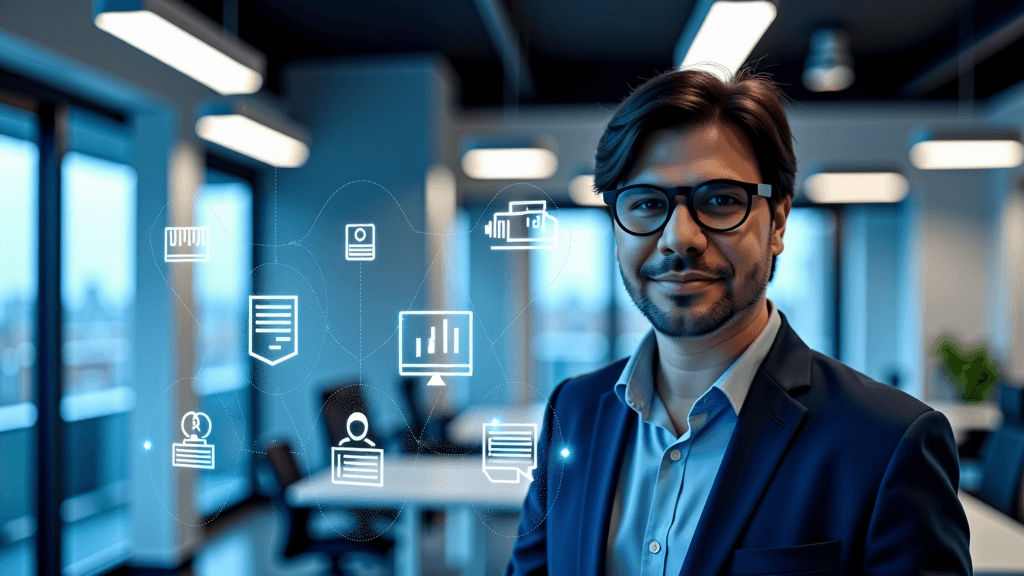AI Radar: Between Human Replacement, Energy Consumption and Transparency — The Transformations of the Last 24 Hours
April 30, 2025 | by Matos AI

We are experiencing a real race for artificial intelligence that is simultaneously affecting multiple sectors. The news of the last 24 hours reveals a fascinating and, at times, worrying panorama. From educational applications replacing humans with AI to alarming predictions about global energy consumption, the current scenario offers us important reflections on the future we are building.
Duolingo and the “AI-first” Transition: The Beginning of an Irreversible Trend?
I start our daily analysis with a news story that perfectly exemplifies the transformation that the job market is undergoing. Duolingo, a popular language learning app, has officially announced its transition to an “AI-first” strategy, which includes gradual replacement of human employees by artificial intelligence.
According to a statement from CEO Luis von Ahn: “Without AI, it would take decades to scale our content to more learners.” The company has already replaced manual content creation processes with AI-powered workflows and plans to extend the use of the technology to hiring, performance reviews and team evaluations, as reported by Exam.
Join my WhatsApp groups! Daily updates with the most relevant news in the AI world and a vibrant community!
- AI for Business: focused on business and strategy.
- AI Builders: with a more technical and hands-on approach.
Duolingo’s decision is not an isolated case, but rather a concrete example of a trend I’ve been observing for years: companies seeking scale and efficiency through intelligent automation. The company’s argument is that it’s not about simply replacing people, but about allowing employees to focus on more creative tasks — a line that has become standard in automation processes.
The question we need to ask ourselves is: how many companies will follow suit in the coming weeks and months? And are we prepared, as a society and as an economy, to absorb the professionals whose roles will be automated?
AI and Energy Consumption: A Growing Environmental Challenge
Another piece of news that deserves our attention points to one of the major challenges of the expansion of AI: its environmental impact. According to calculations by the International Energy Agency, artificial intelligence will consume 3% of all global electricity by 2030 — volume equivalent to all of Japan's annual consumption, as revealed in a report by UOL.
This is particularly relevant when we consider that in some countries like the US, AI energy consumption is expected to outpace entire industrial sectors, including the manufacturing of consumer goods, aluminum, steel, and chemicals. This reflects both the deindustrialization of the US and the exponential growth of AI-based services.
As an entrepreneur and observer of the innovation ecosystem, I realize that we are facing a paradox: on the one hand, AI promises solutions to environmental challenges; on the other, its very operation demands immense energy resources. This contradiction will need to be urgently addressed by developers and companies in the sector.
DeepSeek and Transparency of Reasoning: A New Paradigm for Trustworthy AI
One piece of news that particularly caught my attention was the emergence of DeepSeek, an AI developed by Chinese researchers that allows the user to follow, in real time, the logical process that leads to the generation of responses. According to Accounting, this unprecedented approach has the potential to transform the way professionals and companies use technology, especially in environments that require a high degree of reliability.
What makes this innovation so important is that it directly addresses one of the main concerns with generative AI systems: the opacity of the decision-making process. When we don’t understand how an AI reaches a certain conclusion, we are limited in our ability to evaluate and trust its results.
This transparency in reasoning connects directly with another relevant news item: report from Valor Econômico which highlights how AI is highlighting the need to mitigate the risks of false content not only being intentional, but the result of a lack of identification of reliable sources.
In my work with startups and large corporations, I have consistently emphasized the importance of building accountable and transparent AI systems. Trust will be the most valuable currency in the AI economy, and initiatives like DeepSeek show a promising path.
Education in the Age of AI: New Skills for a New World
Chemist and educator Mozart Neves Ramos shares in an interview with Economic Value how he had to reinvent his teaching approaches after a student questioned the need to attend class when information was available on the internet. This experience resonates deeply with my own journey as an educator and entrepreneur in the field.
The article highlights that more than what is taught, it is necessary to change how it is taught. In an era where tools like ChatGPT allow instant access to information, research, interpretation, and critical thinking skills become even more crucial.
This transformation in education reflects what I have called CACACA — an acronym for the six core skills needed by the workers of the future: Creativity and Autonomy; Collaboration and Adaptability; Connection and Affection. It is precisely these human skills that will remain valuable as more routine tasks are automated.
Potentials and Risks: Geoffrey Hinton's Warning
Geoffrey Hinton, considered one of the “godfathers of AI”, brought an important warning in a recent interview. According to the State, Hinton predicts that Artificial general intelligence — a theoretical system with human-like cognitive abilities — could arrive in 10 years or less.
Their central concern is that if we continue to approach AI with a purely profit-driven mindset, we increase the risks of an “AI takeover,” or malicious actors co-opting the technology for dangerous purposes.
This kind of warning, coming from one of the pioneers of the field, should be taken seriously. As I have argued in my speaking and consulting work, we need a balance between innovation and responsibility. Artificial intelligence is not inherently good or bad — its impact will depend on the choices we make as societies, businesses, and individuals.
Digital Inequality: The AI Divide and UN Proposals
Last but not least, the Student Guide brings a reflection on the “AI Divide” — the phenomenon of inequality generated by the unequal distribution of access and benefits of artificial intelligence. While nations like the United States and China lead the technological race, emerging economies like Brazil face structural barriers.
This issue touches me particularly, as I have dedicated much of my career to democratizing access to innovation and technology in Brazil. The challenge of the AI Divide is not only technological, but also political, economic and social.
The good news is that there are ways to bridge this gap. As highlighted at Web Summit Rio, an event I followed closely, there is a growing trend of using AI as a lever for sustainability and inclusion, as reported by InfoMoney. Brazil has the potential to be an important hub for investments in AI platforms with a social purpose.
Conclusion: Navigating the Present to Build the Future
The news of the last 24 hours clearly shows that we are at a turning point for artificial intelligence. Transformations are occurring at an accelerated pace, affecting everything from the labor market to global energy consumption, education and digital inequality.
As leaders, entrepreneurs, and professionals, we need to be not only informed about these changes, but actively involved in steering them in positive directions. Artificial intelligence has the potential to solve major challenges facing humanity—or to amplify existing problems, depending on how we implement it.
In my work as a mentor and consultant, I have helped companies navigate this complex landscape, identifying opportunities for responsible innovation and developing strategies to adapt to the AI economy. Whether through adopting specific tools, empowering teams, or rethinking business models, there are concrete paths to thriving in this new context.
And you, how are you preparing your company or career for this future that has already arrived? In my WhatsApp groups about AI for Business and AI Creators, we discuss these issues daily and share practical application cases. The time to act is now — because the speed of this transformation will not give us the luxury of waiting to see what happens.
✨Did you like it? You can sign up to receive 10K Digital's newsletters in your email, curated by me, with the best content about AI and business.
➡️ Join the 10K Community here
RELATED POSTS
View all



